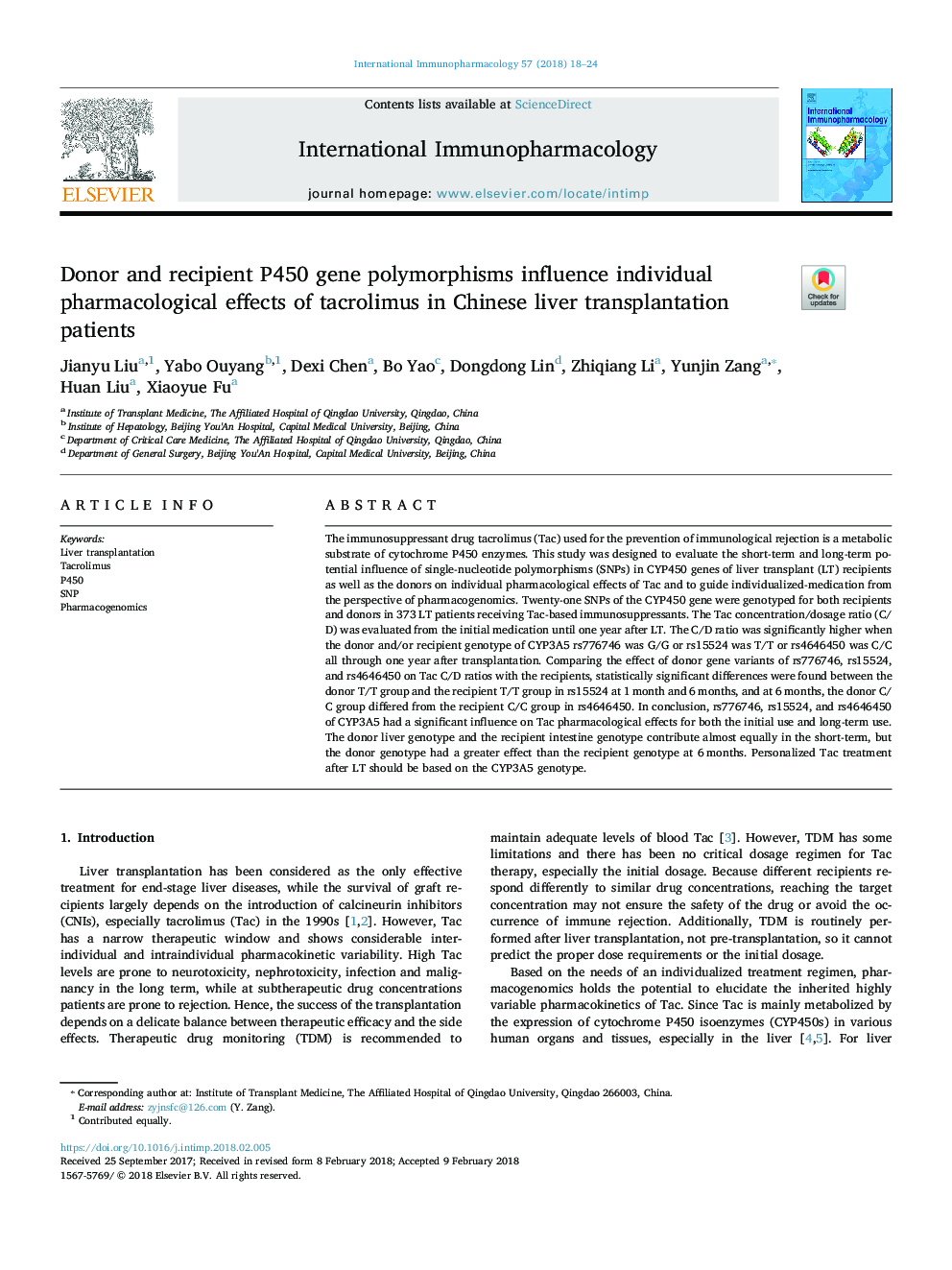| Article ID | Journal | Published Year | Pages | File Type |
|---|---|---|---|---|
| 8531264 | International Immunopharmacology | 2018 | 7 Pages |
Abstract
The immunosuppressant drug tacrolimus (Tac) used for the prevention of immunological rejection is a metabolic substrate of cytochrome P450 enzymes. This study was designed to evaluate the short-term and long-term potential influence of single-nucleotide polymorphisms (SNPs) in CYP450 genes of liver transplant (LT) recipients as well as the donors on individual pharmacological effects of Tac and to guide individualized-medication from the perspective of pharmacogenomics. Twenty-one SNPs of the CYP450 gene were genotyped for both recipients and donors in 373 LT patients receiving Tac-based immunosuppressants. The Tac concentration/dosage ratio (C/D) was evaluated from the initial medication until one year after LT. The C/D ratio was significantly higher when the donor and/or recipient genotype of CYP3A5 rs776746 was G/G or rs15524 was T/T or rs4646450 was C/C all through one year after transplantation. Comparing the effect of donor gene variants of rs776746, rs15524, and rs4646450 on Tac C/D ratios with the recipients, statistically significant differences were found between the donor T/T group and the recipient T/T group in rs15524 at 1â¯month and 6â¯months, and at 6â¯months, the donor C/C group differed from the recipient C/C group in rs4646450. In conclusion, rs776746, rs15524, and rs4646450 of CYP3A5 had a significant influence on Tac pharmacological effects for both the initial use and long-term use. The donor liver genotype and the recipient intestine genotype contribute almost equally in the short-term, but the donor genotype had a greater effect than the recipient genotype at 6â¯months. Personalized Tac treatment after LT should be based on the CYP3A5 genotype.
Related Topics
Life Sciences
Immunology and Microbiology
Immunology
Authors
Jianyu Liu, Yabo Ouyang, Dexi Chen, Bo Yao, Dongdong Lin, Zhiqiang Li, Yunjin Zang, Huan Liu, Xiaoyue Fu,
